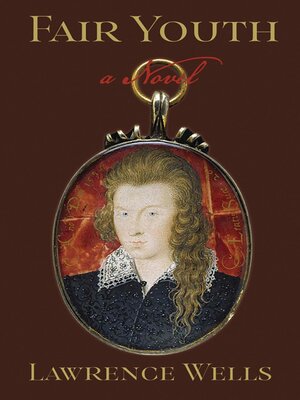
Sign up to save your library
With an OverDrive account, you can save your favorite libraries for at-a-glance information about availability. Find out more about OverDrive accounts.
Find this title in Libby, the library reading app by OverDrive.



Search for a digital library with this title
Title found at these libraries:
| Library Name | Distance |
|---|---|
| Loading... |
In 1570 Edward de Vere, 17th Earl of Oxford, 20, Lord Great Chamberlain, a headstrong young nobleman with literary ambitions, enters into a romance with Queen Elizabeth I. As the queen's chief of courtly entertainment de Vere organizes a stable of writers producing plays and masques. His peers nickname Vere "the Spear-shaker."
Fearing court gossip about the royal affair, Elizabeth orders Oxford to marry Lord High Treasurer William Cecil's 14-year-old daughter, Anne.
After his marriage to Anne, De Vere resumes his affair with Elizabeth, who secretly bears a son who, within days of his birth, is given to the heirless Henry Wriothesley, 2nd Earl of Southampton. Enthralled with having fathered a potential future king, Oxford pressures Queen Elizabeth to acknowledge her royal bastard, also named Henry Wriothesley. When she refuses, de Vere using the pseudonym "William Shakespeare" writes sonnets dedicated to a "Fair Youth" and describing him as a "black," or unacknowledged, prince. Upon reading the sonnets Henry, 17, demands to know the identity of his mother. Oxford refuses to tell him.
To conceal Oxford's authorship of the subversive "Fair Youth" Sonnets, Queen Elizabeth orders him to hire a young actor, Will Shakspere, to front for him as the poet and playwright "William Shakespeare," thus shrouding any biological connection between the poet and Henry. The playgoing public swallows the ruse and applauds Will the actor from Stratford as the author of Shakespeare's plays and sonnets.
Frustrated at being denied his "birthright" Henry Wriothesley joins the doomed Essex Rebellion. After this vain attempt to seize the throne of England he and Essex are sentenced to death. Oxford begs Queen Elizabeth to pardon their son. Essex is executed but Elizabeth commutes Henry's sentence.
Before he dies, Oxford distributes his manuscripts among his three daughters and gives the original Sonnets to Henry Wriothesley. at the posthumous orders of Queen Elizabeth I, Henry and Oxford's son-in-law, William Stanley, the Earl of Derby, secretly disinter Edward de Vere's body from St. Augustine Church, in Hackney, and rebury him at Westminster Abbey near the queen's burial chamber. Entering the royal burial chamber, Henry Wriothesley grieves both his biological parents, especially the one who refused to acknowledge him.
Meg Nola, Foreword Reviews
In the spiritedhistorical novel Fair Youth, the oft-debated "Oxfordian" theory of Shakespeare's authenticity is explored with humor, verve, compassion, and irony.
Lawrence Wells'shistorical novel Fair Youthenlivens the theorythat Edward de Vere, England's seventeenth Earl of Oxford, was the true author of William Shakespeare's plays.
Spirited and speculative, Fair Youthis a captivating historical novel that explores the true originsof Shakespeare's works.







